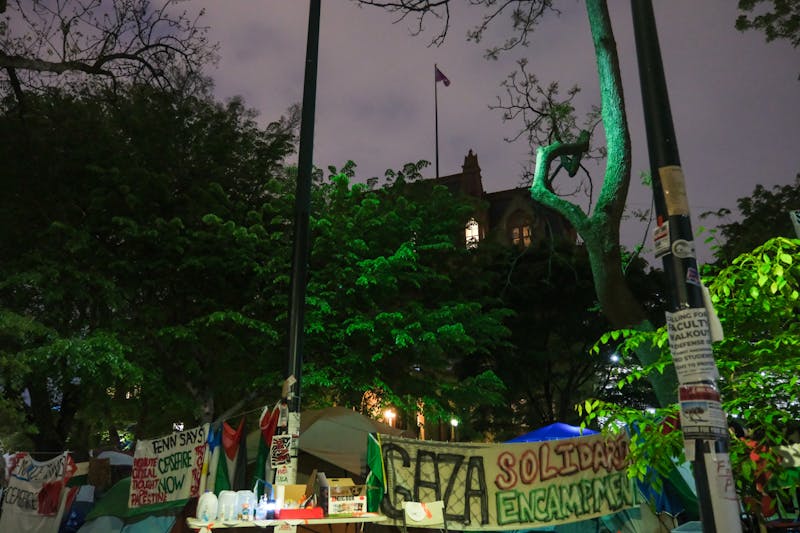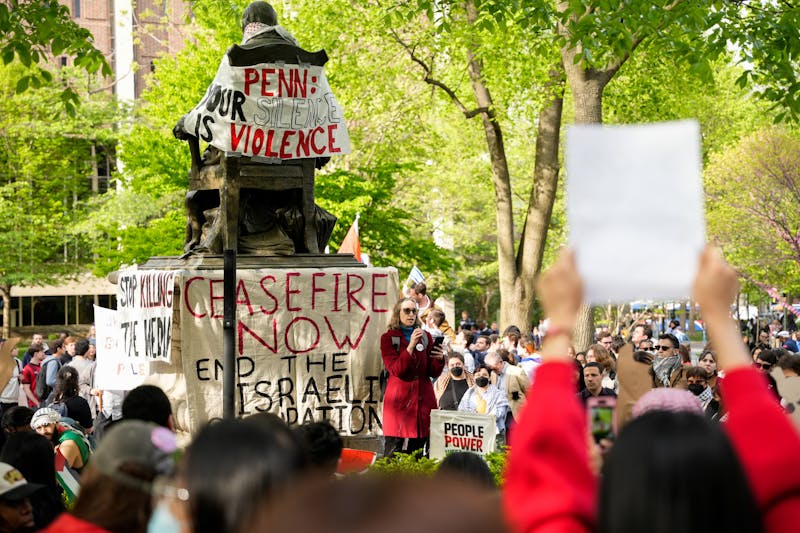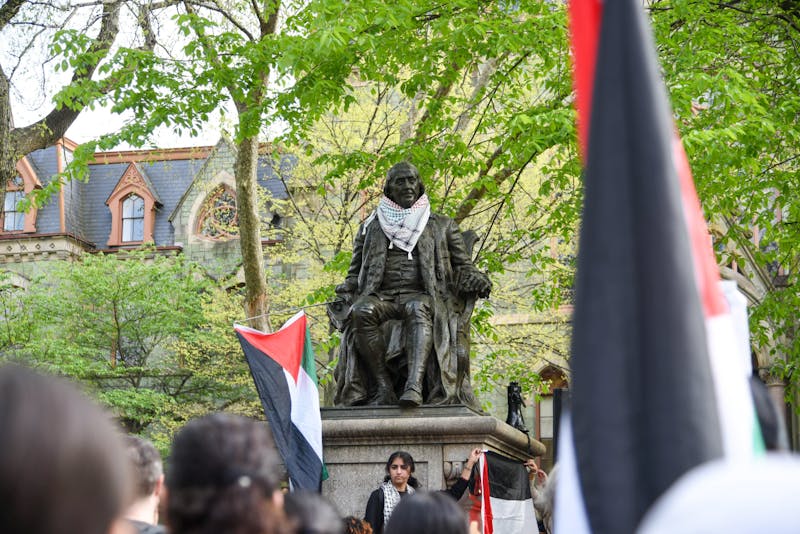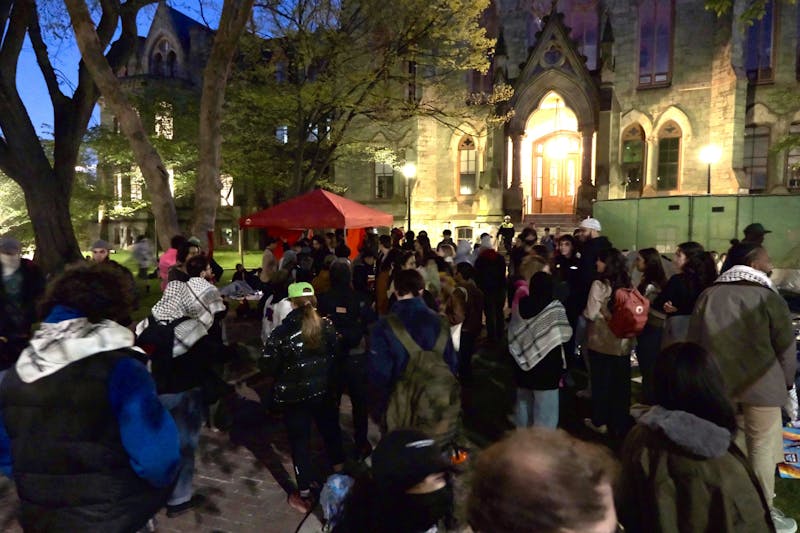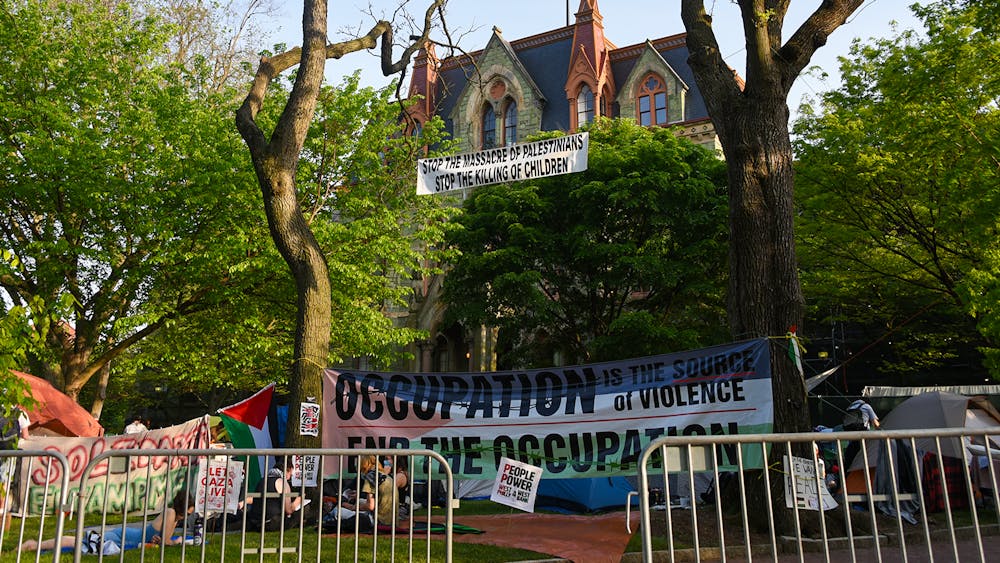
Penn’s Committee on Open Expression is calling for a review of the Guidelines on Open Expression following recent campus protests.
Credit: Chenyao LiuAmid ongoing discussions surrounding recent campus protests, Penn’s Committee on Open Expression is calling for a review of the Guidelines on Open Expression, according to a statement sent to The Daily Pennsylvanian.
The statement discussed the COE’s role in the University's response to the Gaza Solidarity Encampment and the possibility of making changes to the open expression guidelines. Such changes would mark the sixth revision of the Guidelines on Open Expression and the first update since 1993.
A spokesperson for the University did not respond to a request for comment.
In the statement, the COE wrote that it believes “the principles of open expression as set forth in the Guidelines are worth defending” but the committee members added that they “also believe the infrastructure of open expression at Penn needs strengthening consistent with the law.”
“We are committed to working with the Faculty Senate and University Council to review the Guidelines on Open Expression,” the statement continued. It is unclear what a timeline for this review would look like.
Wharton professor and COE member Eric Orts, speaking in his personal capacity, told the DP that he thinks there is a “general sense that maybe we have to relook at the way in which the [COE] is structured.”
He noted that, under the current rules, during a disciplinary process for a student, the vice provost for University Life asks the COE for advice when questions arise about issues involving “free expression or open expression.”
“At the end of the day, [the COE is] only advisory,” Orts said. “So some people think … this committee should have more power than that and should be able to tell the VPUL what to do.”
The statement also addressed the role of the COE in analyzing the Guidelines on Open Expression with regard to the encampment, adding that the committee “worked hard to interpret the Guidelines and to apply them (when asked) to a difficult and evolving situation.”
"The COE chair and two other members were included in discussions with the interim president, provost, senior leadership, and the Faculty Senate Executive Committee,” the statement read. “We also reached out to protesting students and their faculty advisors.”
On May 10, Penn Police officers in riot gear, with the assistance of Philadelphia Police, arrested 33 individuals — including nine Penn students — at Penn’s Gaza Solidarity Encampment.
The arrests came 16 days after pro-Palestinian activists pitched approximately 40 tents on College Green in protest of the University's response to the war in Gaza. The group demanded that Penn disclose its financial holdings; divest from corporations that benefit from the ongoing Israel-Hamas war, Israel’s occupation of Palestinian land, and Israeli institutions committing “scholasticide"; and defend Palestinian students and withdraw its disciplinary actions against pro-Palestinian activists.
The DP previously reported that the University opened a dozen disciplinary cases into students involved with the encampment.
At the time, a University spokesperson wrote to the DP that faculty and staff violations “will follow the relevant disciplinary processes.”
“These actions, while unfortunate, are necessary,” the spokesperson wrote.
The COE is comprised of 17 members, including faculty and graduate and undergraduate students, and is chaired by Lisa Bellini, a professor of medicine at the Perelman School of Medicine. The Committee was created under and must abide by the jurisdiction of Penn’s Guidelines on Open Expression.
The COE acts as an advisory body to the vice provost of University Life, whose office is responsible for monitoring violations of the open expression guidelines and deciding whether to pursue disciplinary action in response. According to the VPUL's discretion, they may refer the case to the Center for Community Standards and Accountability, which conducts hearings to determine culpability and assign appropriate penalties.
The Daily Pennsylvanian is an independent, student-run newspaper. Please consider making a donation to support the coverage that shapes the University. Your generosity ensures a future of strong journalism at Penn.
Donate







